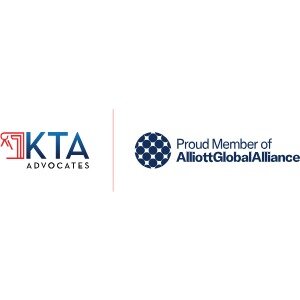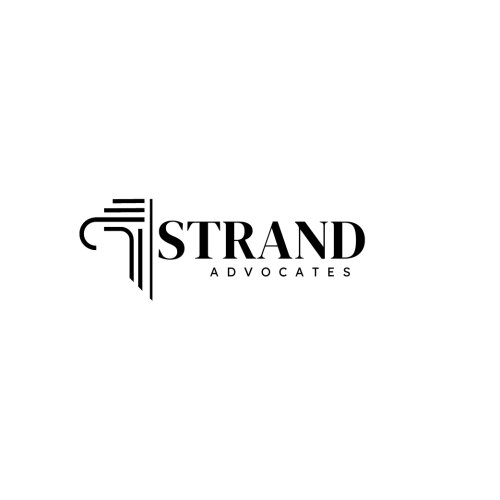Best Bad Faith Insurance Lawyers in Kampala
Share your needs with us, get contacted by law firms.
Free. Takes 2 min.
List of the best lawyers in Kampala, Uganda
About Bad Faith Insurance Law in Kampala, Uganda
Bad Faith Insurance refers to an insurer's attempt to renege on its obligations to its policyholders through refusal to pay a rightful claim, unnecessary delay in handling claims, improper investigation, or any such unlawful conduct. In the context of Kampala, Uganda, the Insurance Regulatory Authority regulates all insurance-related transactions, ensuring that there is fair play between insurance companies and policyholders.
Why You May Need a Lawyer
An individual might require the help of a lawyer for several reasons. If you believe that your insurance company is denying claims without a legitimate rationale, unnecessarily delaying payment, or not conducting an adequate investigation, it might indicate Bad Faith Insurance. Insurance laws can be complex, and a lawyer's assistance is crucial to help you navigate through the intricacies, ensuring your rights are protected.
Local Laws Overview
Several laws govern the insurance sector in Kampala, Uganda. The Insurance Act of 2017 and the Insurance Regulations of 2002 are particularly relevant in cases of Bad Faith Insurance. The Insurance Act stipulates the mandates of insurance providers and the rights of policyholders. The law obligates insurance companies to deal honestly with their clients, and if they fail to do so, the client has the right to sue for damages.
Frequently Asked Questions
1. What constitutes bad faith in an insurance claim?
Bad faith can include tactics such as unjustified denial of coverage, delay in payment, not conducting a thorough investigation, and not clearly communicating policies to the policyholder.
2. What can I do if I suspect Bad Faith Insurance tactics are being practiced?
If you suspect Bad Faith Insurance practices are involved, it's advisable to consult with a legal expert. They can guide you on how to ensure your rights are respected and help you claim damages if necessary.
3. What proof do I need to sue an insurance company for bad faith?
Evidence may include, but is not limited to, proof of policy, correspondence and any notes regarding the denied claim, independent reports documenting the extent of damage, and expert opinions.
4. Can an individual file a Bad Faith Insurance claim without legal representation?
Yes, an individual can file a Bad Faith Insurance claim without a lawyer. However, navigating insurance laws and court proceedings can be complex and daunting. Therefore, having a lawyer who is well-versed in this field can be advantageous.
5. What are the potential damages in a Bad Faith Insurance lawsuit?
If a court determines bad faith, you may receive compensation covering the denied claim, mental and emotional distress, and in some cases, punitive damages.
Additional Resources
The Insurance Regulatory Authority of Uganda (IRA) is a significant resource when dealing with Bad Faith Insurance. They provide information on insurance providers, regulations, and can be consulted if you suspect your insurer has acted in bad faith. In addition, there are numerous local and online legal advice forums where you can find guidance.
Next Steps
If you believe that you are a victim of Bad Faith Insurance, you should immediately consult a lawyer specialized in this field. Gather all relevant documentation such as policy documents, claim correspondences, independent assessments, and any other necessary evidence. Reporting to the Insurance Regulatory Authority can also be a strategic next step.
Lawzana helps you find the best lawyers and law firms in Kampala through a curated and pre-screened list of qualified legal professionals. Our platform offers rankings and detailed profiles of attorneys and law firms, allowing you to compare based on practice areas, including Bad Faith Insurance, experience, and client feedback.
Each profile includes a description of the firm's areas of practice, client reviews, team members and partners, year of establishment, spoken languages, office locations, contact information, social media presence, and any published articles or resources. Most firms on our platform speak English and are experienced in both local and international legal matters.
Get a quote from top-rated law firms in Kampala, Uganda — quickly, securely, and without unnecessary hassle.
Disclaimer:
The information provided on this page is for general informational purposes only and does not constitute legal advice. While we strive to ensure the accuracy and relevance of the content, legal information may change over time, and interpretations of the law can vary. You should always consult with a qualified legal professional for advice specific to your situation.
We disclaim all liability for actions taken or not taken based on the content of this page. If you believe any information is incorrect or outdated, please contact us, and we will review and update it where appropriate.
















